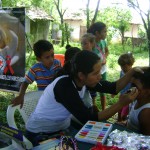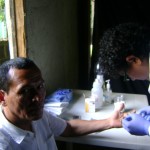Day 2: UN High-Level Meeting on Youth
July 27, 2011 in Life
Yesterday unlike Day 1, Day 2 (26th July 2011) of the UN High-Level Meeting on youth, there wasn’t such a long queue to get through all the process of security check and issuing of entry pass to have access into the 4th balcony of the UN General Assembly Hall.
The Day 2 event consist of only Formal plenary meetings. The plenary was opened by the President of the General Assembly, Mr. Joseph Deiss at 10am. In his opening remarks, the Mr. Deiss acknowledged all the stakeholders who have contributed to the formation of this Draft Outcome Documents that is to be adopted by this General Assembly: 112th plenary meeting – High-level Meeting on Youth
After Mr. Deiss introduced the plenary, each country’s government delegates were given time to speak on the Draft outcome document. There were two sessions; from 10am to 1pm and from 3pm to 6pm. There were more than 100 country’s who were on the list to speak. By 6:30pm the meeting was suspended though there were many other who did not have their turn to speak.
It was quite interesting to hear all the government delegates speaking about their efforts to work with their youth’s respectively.
• There are some governments who have Youth Councils recognized formally by the government,
• while others have a youth department in the government
• while many have a good youth programs coordinated by the government.
• And even interestingly three government delegates to this meeting were youths; they were from Australia, Germany and Sweden and they get to speak representing their country.
In most of the government delegates speeches they either
• Present their effort to work with their youths
• the challenges and achievements of their efforts
• reaffirming the Draft outcome document
• and provide some recommendations for UN to consider in its effort to work with the youths.
Two recommendations from some of the speakers I can recall are:
• to set up a UN agency for youth and
• to respective government’s to include youth delegates to such meetings
You can see all the speeches from Day 1 and Day 2 on the UN Web cast site at: http://www.unmultimedia.org/tv/webcast/c/youthmeeting2011.html/a>



